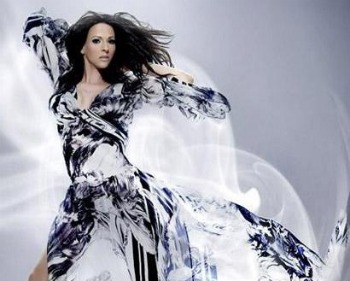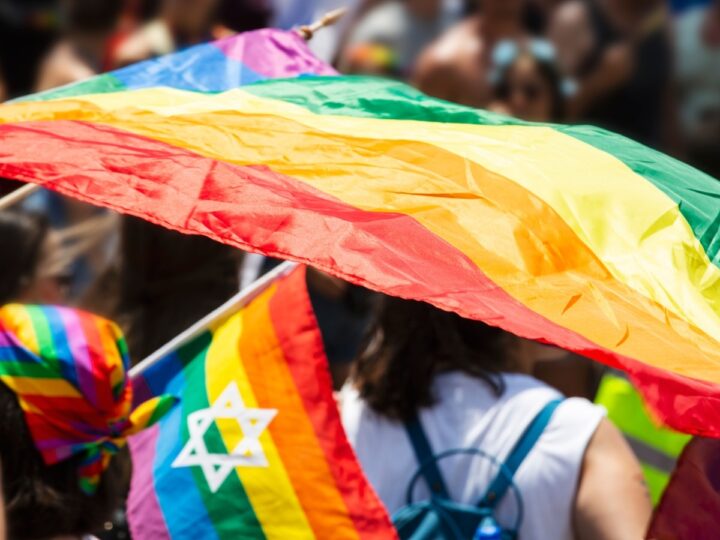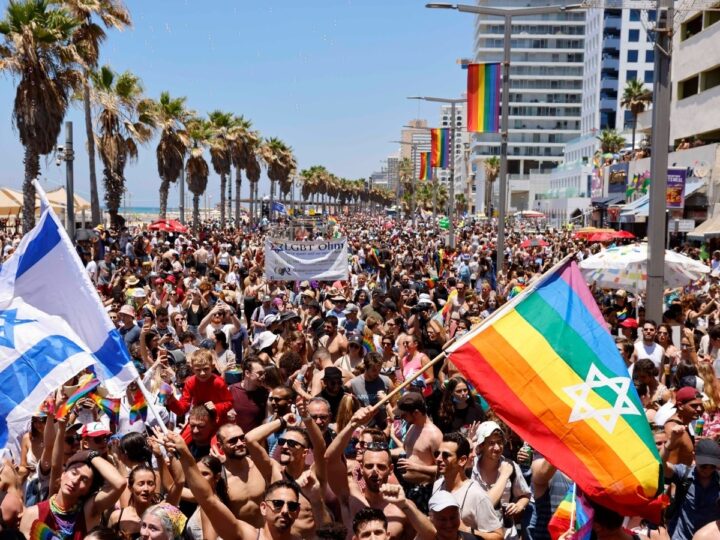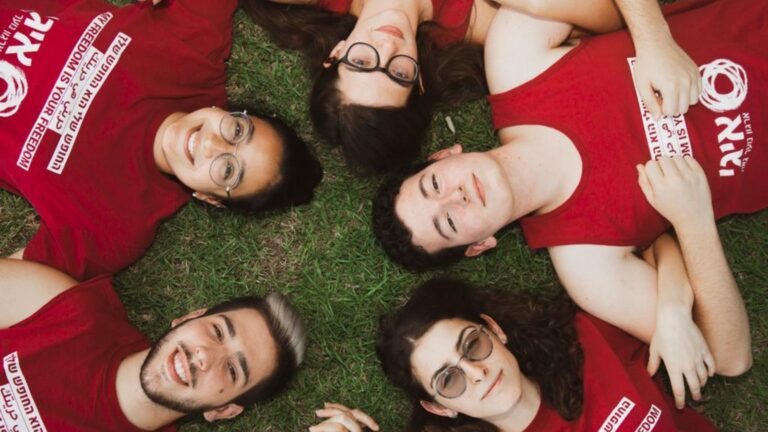She’s the world’s most famous transsexual celebrity – now Dana International is geared up to represent Israel for the fourth time in the major European song contest.

“I love Israel!” shouted Dana International joyously last month onstage at the Hendler Auditorium in Rishon Lezion just south of Tel Aviv.
Wearing a figure-hugging sleeveless white gown adorned with feathers that would have made Lady Gaga jealous, Dana was spreading the love she had just received from Israelis across the country. TV viewers as well as the members of the Rishon audience at the annual pre-Eurovision competition had just selected the flamboyant transsexual singer and her frothy song, Ding Dong, to represent Israel at the Eurovision Song Contest, which is expected to be watched by upwards of 600 million people during its finals on May 14.
It’s not the first time Dana, one of the most famous transgender celebrities in the world, is representing the Jewish state in the Eurovision contest. In 1998, Israel won the contest for the third time with Dana’s song Diva and in 2008, she wrote the Israeli entry, K’elu Kan, for singer Boaz Mauda.
But this time may be the sweetest for Dana, whose popularity has ebbed and flowed over the course of an almost-20-year-career that has seen the release of eight albums, countless collaborations and international acclaim.
“I’m delighted like a small child. Representing Israel in the Eurovision is one of the greatest pleasures of this profession,” Dana told Israeli news site Ynet after the Rishon contest. “It was important for me to represent Israel in Germany of all places, and I hope I won’t disappoint anyone,” she added, referring to this year’s event, which will be held in Dusseldorf owing to Germany’s Eurovision victory last year.
Household name
For Dana, representing Israel is the culmination of a long path. She was banned by TV and radio early in her career on the grounds that a transsexual sent the wrong message to the nation’s youth. Attitudes in Israel have rapidly changed, however, and today Dana is a household name and image on par with hummus and pita.
Her albums and songs zoom to the top of the charts; she’s one of the country’s most in-demand performers for corporate functions, club shows and weddings; and she is one of the judges of the Israeli version of American Idol, Kokhav Nolad. Not bad for the former Yaron Cohen, born 39 years ago to a Yemenite family in Tel Aviv.
Dana has said that she identified as a female from a very young age, and wanted to become a singer ever since, at eight years old, she saw the legendary Ofra Haza singing Chai in the 1983 Eurovision Song Contest.
Dana began performing as a drag queen and by the age of 18, she was widely known in the gay club scene. One of Israel’s most famous DJs, Offer Nissim, saw her act and in 1992 produced her debut single, Saida Sultana (My Name is Not Saida), a satirical version of Whitney Houston’s My Name is Not Susan. The song received considerable airplay and launched her career as a professional singer.
In 1993, Dana underwent sex reassignment surgery abroad and legally changed her name to Sharon Cohen. That same year, her debut dance album, Danna International in Israel, was released not only in Israel but also in Greece, Jordan and Egypt, creating a buzz in the dance clubs of the Middle East. She soon dumped the extra “n” in her name but added legions of fans with the album and its 1994 trance-influenced follow-up, Umpatampa, which led her to winning the Best Female Artist of the Year at the annual ACUM awards, the Israeli equivalent of the Grammys.
Dana’s first brush with Eurovision came in 1995, when she captured second place in the Israeli pre-Eurovision contest with Layla Tov, Eropa (Good Night, Europe). Following a successful third album in 1997, Maganuna, she was chosen to represent Israel in the 1998 contest with the upbeat Diva.
Despite unsuccessful attempts by Israel’s religious establishment to block her participation, Dana beat the odds by winning the competition, and becoming a worldwide celebrity.
‘God is on my side’
In response to those her criticized her lifestyle choice, she answered: “My victory proves God is on my side. I want to send my critics a message of forgiveness and say to them: Try to accept me and the kind of life I lead. I am what I am and this does not mean I don’t believe in God, and I am part of the Jewish nation.”
The next decade saw Dana enter the mainstream of Israeli society with more albums, relocation to Europe, an aborted record deal with Sony/BMG and a fallow period in the mid-2000s. However, in 2007, Dana returned to the big time with the album Hakol Ze L’Tovah featuring the popular single Love Boy, which returned her to the top of the charts and the public’s consciousness.
She’s become a poster girl for Israel’s tolerant policies toward the gay and transgender communities and has been so integrated into mainstream society that in 2009, she performed at rallies for political party Kadima and its leader Tzipi Livni, and last year at the opening concert of the Tel Aviv-Yafo Centennial Year, performing the song Lo Nirdemet Tel Aviv (Tel Aviv Doesn’t Fall Asleep) in front of 250,000 people.
In addition to performing regularly in Israel, Dana travels around the world to appear at gay pride parades and receives the adulation of those who consider her a pioneer for transgender rights.
Fourth Eurovision title?
On May 10 and May 12 during the Eurovision semi-finals — in which singers from a record 43 countries will compete – and, if she gets that far, at the May 14 finals, Dana will attempt to bring Israel its fourth Eurovision title (in 1978, Izhar Cohen won with Aba Nibi, and in 1979 Gali Atari, backed by Milk and Honey, won for Hallelujah before Dana’s 1998 win for Diva.)
For Dana, her appearance will be a victory even if she doesn’t take the top spot.
“I represent a liberal Israel, an Israel which accepts the human being no matter how you are, no matter how you look like and no matter what sex or race you are,” she has said.
Whether or not Ding Dong possesses the magic necessary to pull off a victory, one thing is for sure. Dana International will make her triumphant return to this year’s Eurovision contest an occasion to remember.















